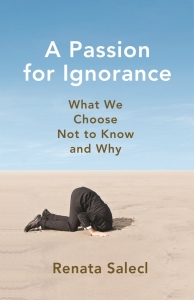“Philosophy of Technology” with Professor Peter-Paul Verbeek
Philosophical reflection on technology is not new, it is about as old as philosophy itself. However, as the impact of technology on everyday human life and on society keeps increasing, and new and emerging technologies permeate nearly every aspect of our daily lives, it is crucial that human-technology relationships are studied extensively and understood thoroughly. In this episode of Bridging the Gaps, I speak with philosopher Professor Peter-Paul Verbeek who suggests that human-technology relationships should be studied by focusing on how technologies mediate our actions and our perceptions of the world.
Peter-Paul Verbeek is Distinguished Professor of Philosophy of Technology at the Department of Philosophy of the University of Twente. He is chair of the Philosophy of Human-Technology Relations research group and co-director of the DesignLab of the University of Twente. He is also honorary professor of Techno-Anthropology at Aalborg University, Denmark and is chairperson of the UNESCO World Commission on the Ethics of Science and Technology (COMEST). His research focuses on the philosophy of human-technology relations, and aims to contribute to philosophical theory, ethical reflection, and practices of design and innovation.
I open this discussion by asking Professor Verbeek why humans are usually worried about new technologies. This is not a new phenomenon; even in ancient Greek, philosophers expressed their concerns about the emerging technologies of their time. We see similar concerns expressed at the time of the invention of the printing press. Now we see similar views being expressed by technologies such as Artificial Intelligence and Robotics. We discuss in detail philosophy of technology, technology ethics, ethics from with-in and the challenges posed by powerful and intelligent technologies of the future.
Complement this discussion with Professor Luciano Floridi’s thoughts on Philosophy and Ethics of Information and then listen to Dr Karl Frey’s views in “The Technology Trap and the Future of Work”.


Connect With Us